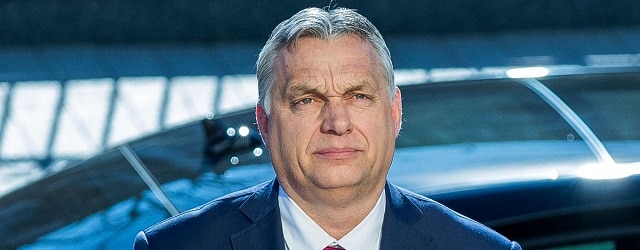Europe's most illiberal democracy may no longer be a democracy.

Viktor Orban is no stranger to controversy. The European Union’s most authoritarian leader—most recently re-elected in 2018—has long pushed the envelope of EU norms on press freedom, nationalism, gerrymandering, judicial and central bank independence, nepotism and a range of other issues, earning Hungary the dubious title of Europe’s most illiberal democracy.
Orban outdid himself on March 30, when he responded to the Covid-19 pandemic by giving himself the right to rule by decree, indefinitely, with any criticism of him or his government punishable by imprisonment. Although parliament has the power to restore the previously existing status quo, his party Fidesz enjoys an absolute majority, making this apparent safeguard a fig leaf.
Orban’s moves violate the EU’s most sacred tenet: All member states must be functioning democracies. Overwhelmed by Covid-19, Brussels seems to have been blindsided, failing to come up with any response beyond weak condemnation.
Some say that if the new policies are truly temporary and little used, the implications for business will be few. “[These measures] should last as long as the emergency. [If not,] there will be implications for FDI,” says Peter Virovacz, senior economist with ING Bank in Budapest. “But given the current possibility of a global economic collapse, it will be hard to separate the power play from the new economic reality.”
Once the virus threat has receded, Brussels may opt for one of the few steps open to it to bring Hungary to heel: curtailing financial flows. Disbursements to Hungary under the most recent Structural and Investment Fund (ESIF) program, between 2014-2020, were equivalent to around 6% of GDP, enabling numerous infrastructure and other projects—and thereby enriching Orban’s cronies. Details of the next ESIF round are yet to be finalized but will top the last program, which means Hungary could be hit hard if Brussels decides to punish Orban this way. Reducing ESIF flows may not be easy. And Poland may object, fearing it could face similar treatment. Yet if the EU wants to maintain international credibility, there might be no other option.



